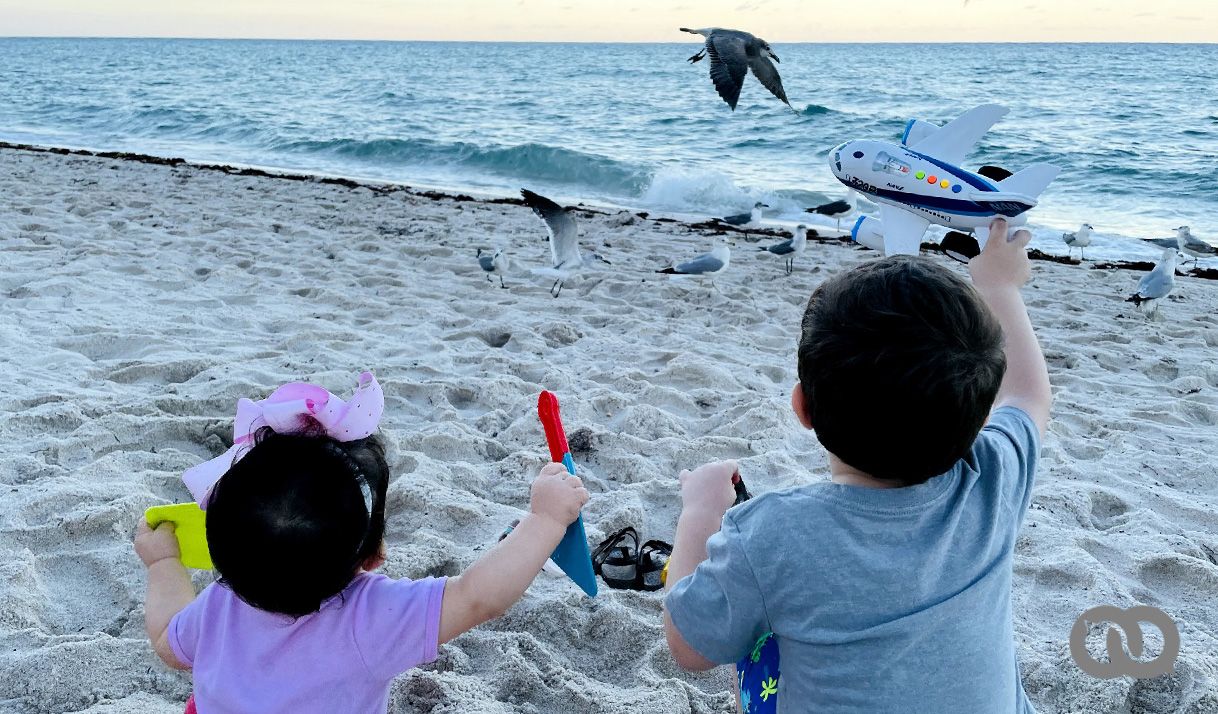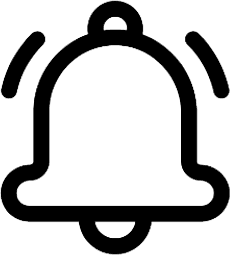Ever since we arrived in the United States, it’s like there aren’t enough hours in the day. We have video calls pending with friends and family. We almost don’t have the time to answer WhatsApp messages. I was recently talking to a friend about the madness we experienced with the children starting all over again and she said something that got me thinking.
She also emigrated a year ago, but alone. She told me that it was very hard to adapt in the beginning because you had to get settled into an unknown environment, with a different language, get documents, find a way to move forward… If you’re emigrating with two small children, then the responsibility and obstacles you face double.
Crossing borders, embarking on a journey which you only know the beginning to but not the end, leaving everything behind while you accept an uncertain future is a challenge that seems too much. It’s such a heavy burden that it overwhelms you at times.
My friend made me realize that I’m (we’re) going through two difficult processes at the same time: migration and maternity. You use the other as a support to keep going and they both demand that you reinvent yourself in new ways.
Where is my identity?
People build a safe space, stability, and routines as they grow up. Maybe this is why it’s so hard to leave your comfort zone and give up the environment you feel safe in.
Emigrating is therefore a process of great change. Emigrating is to be reborn as you navigate inner mourning that appears when you leave that feeling of safety, that feeling of “being home”, behind.
People who emigrate do so to look for better quality of life, beyond any other individual reasons they may have, and the reality check you get when you arrive in a different country with a different social and cultural environment isn’t easy. Motherhood is a process that also changes. You’re reborn with your children, you start from scratch and let go of the life you’d known up until that point.
Motherhood was never in my immediate plans. When I decided (we decided) to have Daniel, the changes this meant to my life were hard because I had to give up my dreams to look after him. Then, Emma would come less than two years later, which meant new responsibilities. The never-ending nights of colic and crying came back, worries, fears and stress multiplied.
Nobody prepares you to be a mother or father, even if you plan it in advance and you have forty weeks to get your head around what’s going to come. Nothing compares to the reality, the bucket of cold water that’s thrown over your head when you’re given a baby in your arms that depends on you to survive.
What do I do now? How do I change their diaper? Is it breathing OK? Why are they crying? Does it have gas? How do I burp them? A million questions that go hand-in-hand with bags under your eyes and the tough nights. You have to improvize, let go of what you can’t control and enjoy it amidst the chaos.
That’s why you doubt every decision, every step; it’s not only a matter of you anymore and what you imagine is the best thing from an individual point of view, but now it’s the family you created – and because it’s the thing you love the most, the fear of hurting it is a ghost that torments you around the clock.
Priorities change completely. There are changes in your mindset and lifestyle, as motherhood has a strong connection to the concept of protection and love.
Amidst so much responsibility, making the decision to emigrate for your children touches a nerve. There’s no room for error, you put all of yourself into the decision and you fight against the trauma to move forward.
When migration and motherhood go hand-in-hand, they really rock you. You feel like you somehow lose your identity.
Both experiences have a lot in common. They force you to get out of your comfort zone and adapt to new routines in an unknown context. Finding balance in the personal growth process is a crucial part.
When we arrived in the United States with two small children and a million dreams, we had to reinvent ourselves and settle in the place we chose to be our home.
Motherhood also depends upon the context it develops within. As a result, your way of being a mother changes when the context changes. It’s not only a matter of “changing your address”, but a series of socio-cultural disruptions in every area of your personal and professional life.
You drag values and the culture from your birthplace with you to instill them in your children. Identity negotiations, what you left behind and what you discover when you reach a new country disorganizes everything you’d incorporated into your being up until that moment.
Detachment comes, and you feel like you don’t belong anywhere. The identity crisis forces you to accept different ways of thinking, of doing things and living.
Amidst your own personal crisis, you have to be a mother and try and cushion your children’s own experience of this abrupt change. You must educate, teach, keep traditions, build a new home, settle down.
I’ve had to do this with two small children who are growing up and have their own characters and age-related needs. Our routine is crazy. Here, we wake up early after going to bed ridiculously late and having a night of broken sleep. I try to organize a schedule and make habits in my mind. But every day is a surprise.
Uncertainty: taking the unknown in your stride
I became a mother of a little boy called Daniel for the first time in 2020, in the middle of the COVID-19 pandemic. Ever since then, everything has changed forever, my body and my views on life. An inexplicable strength came that I didn’t know I had inside of me, and I experienced (we experienced) different events that led me (us) to emigrate.
When Emma came in 2022, I knew we had to find a way to leave the country and build a better future for our children. Plus, I wanted to work in my profession, something I’d put on hold when police summons began, after I decided to become an independent journalist.
I stopped writing for my family and dedicated myself to taking care of the children. But I knew our future wasn’t in Cuba, which hurts me as if it were a sick child you can’t save.
The strength you get when you become a parent is what helps you at the time to emigrate. We went from being locked up because of the pandemic, out of fear of becoming infected, to crossing borders, sleeping on the floor with the chilldren and crossing rivers and jungles looking for new opportunities.
When I emigrated, something very similar happened to me like when I became a mother.
As soon as you find out a person is coming into your life who is going to need you, you begin to read books, write out plans, organize yourself; but when you have a baby in your arms, all of the manuals go out of the window. You have an idea about what’s going to happen, what you should do, but reality always forces you to improvise, to learn (and understand) along the way.
The same thing happens with emigration. You draw out objectives in your head, projects, plans; but when the time comes, you have to learn en route, without a manual and instructions.
I don’t know if being a mother helped me in the process of emigrating, or whether emigrating has helped me to become a better mother. I’ve (we’ve) had to shoulder both experiences with the emotional burden of starting over from scratch and breaking the everyday routine we had to build a home with the foundations of uncertainty.
Everything settles with time, and you slowly get into a new routine, while you establish family routines that allow you to do both at the same time.
But it’s hard. The beginning is hard. It’s like we’re taking our first steps with little Emma who is learning how to walk. Somehow, we are learning to walk and to hold each other up and grow together while we try to make the country that took us in our own.
This article was translated into English from the original in Spanish.


If you believe that our journalism is important for Cuba and its people, we want you to know that this is a critical moment.
Behind each publication there is a team that strives to ensure that our products meet high quality standards and adhere to professional and ethical values.
However, to keep a close watch over government, demand transparency, investigate, analyze the problems of our society and make visible the hidden issues on the public agenda is an effort that requires resources.
You can contribute to our mission and that is why today we ask for your help. Select the way you prefer to send us a donation.









comments
We moderate comments on this site. If you want to know more details, read our Privacy Policy
Your email address will not be published. Mandatory fields are marked with *